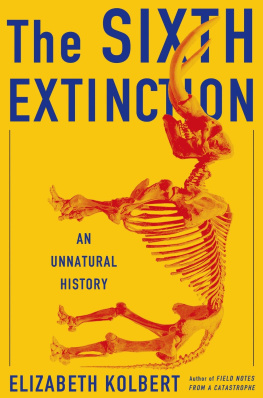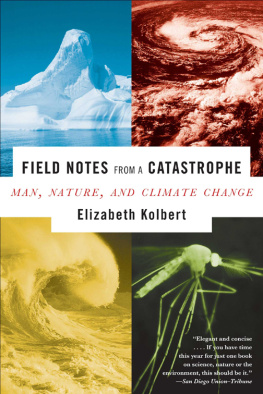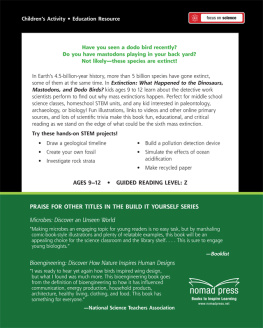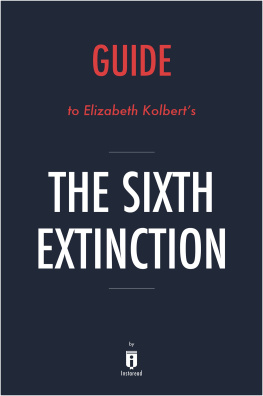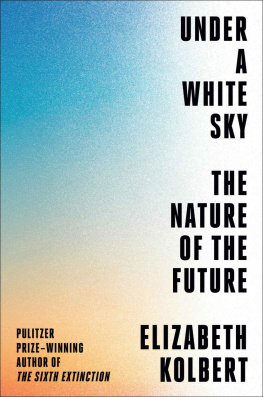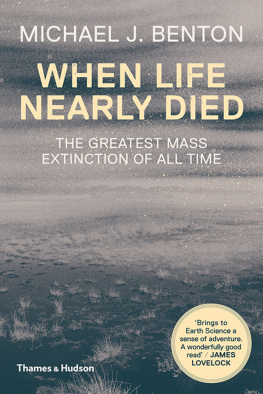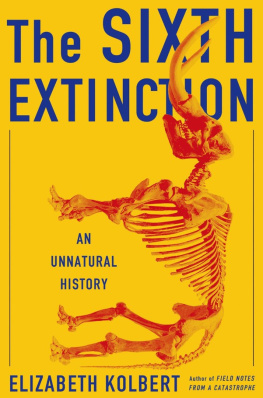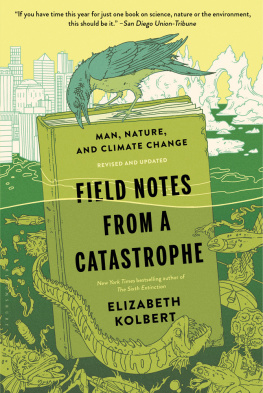Field Notes from a Catastrophe:
A Frontline Report on Climate Change
The Prophet of Love:
And Other Tales of Power and Deceit
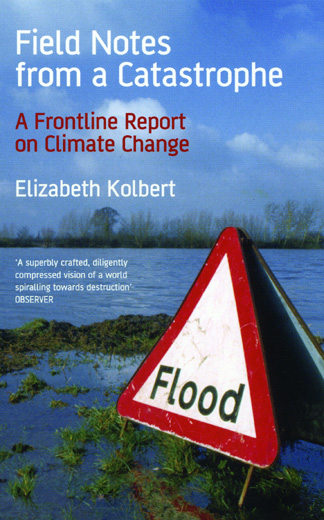
Field Notes from a Catastrophe
A Frontline Report on Climate Change
The world has known about global warming since the late 1970s, yet little has been done to halt it. The threat, if we fail, is nothing less than catastrophe the flooding of coastal communities, the extinction of species and entry into a climate regime of which humans have no experience. Exploring the relationship between what we know and what we refuse to know, Elizabeth Kolbert takes us on an urgent journey from the Arctic to Central America, interviewing researchers, environmentalists and traditional Inuits whose lives have already been dramatically altered by climate change.
Kolbert mesmerises with her poetic cadence in this riveting view of the apocalypse already upon us Robert F. Kennedy, Jr.
The most frightening book Ive read this century Field Notes from a Catastrophe holds a powerful message for us all and we would do well to heed it Times Literary Supplement
A detailed and very readable account of the problems many communities are faced with as the puddles form in the Arctic and how we continue to cover our eyes to the visible changes happening around us Ecologist
A superbly crafted, diligently compressed vision of a world spiralling towards destruction Observer
Order your copy
By phone: +44 (0) 1256 302 699
By email:
Delivery is usually 3 to 5 working days
Free postage and packaging for orders over 20
Online: www.bloomsbury.com/uk/bloomsbury/fiction/
Prices and availability subject to change without notice
Elizabeth Kolbert was a New York Times reporter for fourteen years until she became a staff writer at the New Yorker in 1999. She is the author of Field Notes from a Catastrophe: A Frontline Report on Climate Change. She lives in Massachusetts with her husband and children.
www.elizabethkolbert.com
@ElizKolbert
If there is danger in the human trajectory, it is not so much in the survival of our own species as in the fulfillment of the ultimate irony of organic evolution: that in the instant of achieving self-understanding through the mind of man, life has doomed its most beautiful creations.
E. O. Wilson
Centuries of centuries and only in the present do things happen.
Jorge Luis Borges

First published in Great Britain 2014
Copyright 2014 by Elizabeth Kolbert
This electronic edition published in 2014 by Bloomsbury Publishing Plc
The moral right of the author has been asserted
No part of this book may be used or reproduced in any manner whatsoever without written permission from the publishers except in the case of brief quotations embedded in critical articles or reviews
Every reasonable effort has been made to trace copyright holders of material reproduced in this book, but if any have been inadvertently overlooked the publishers would be glad to hear from them
All rights reserved
You may not copy, distribute, transmit, reproduce or otherwise make available this publication (or any part of it) in any form, or by any means (including without limitation electronic, digital, optical, mechanical, photocopying, printing, recording or otherwise), without the prior written permission of the publisher. Any person who does any unauthorised act in relation to this publication may be liable to criminal prosecution and civil claims for damages.
Bloomsbury Publishing Plc
50 Bedford Square
London
WC1B 3DP
www.bloomsbury.com
Bloomsbury is a trade mark of Bloomsbury Publishing plc
Bloomsbury Publishing, London, New Delhi, New York and Sydney
A CIP catalogue record for this book is available from the British Library
eISBN: 978-1-4088-5123-4
To find out more about our authors and their books please visit www.bloomsbury.com where you will find extracts, author interviews and details of forthcoming events, and to be the first to hear about latest releases and special offers, sign up for our newsletters here.
Contents
Beginnings, its said, are apt to be shadowy. So it is with this story, which starts with the emergence of a new species maybe two hundred thousand years ago. The species does not yet have a namenothing doesbut it has the capacity to name things.
As with any young species, this ones position is precarious. Its numbers are small, and its range restricted to a slice of eastern Africa. Slowly its population grows, but quite possibly then it contracts againsome would claim nearly fatallyto just a few thousand pairs.
The members of the species are not particularly swift or strong or fertile. They are, however, singularly resourceful. Gradually they push into regions with different climates, different predators, and different prey. None of the usual constraints of habitat or geography seem to check them. They cross rivers, plateaus, mountain ranges. In coastal regions, they gather shellfish; farther inland, they hunt mammals. Everywhere they settle, they adapt and innovate. On reaching Europe, they encounter creatures very much like themselves, but stockier and probably brawnier, who have been living on the continent far longer. They interbreed with these creatures and then, by one means or another, kill them off.
The end of this affair will turn out to be exemplary. As the species expands its range, it crosses paths with animals twice, ten, and even twenty times its size: huge cats, towering bears, turtles as big as elephants, sloths that stand five metres tall. These species are more powerful and often fiercer. But they are slow to breed and are wiped out.
Although a land animal, our speciesever inventivecrosses the sea. It reaches islands inhabited by evolutions outliers: birds that lay thirty-centimetre-long eggs, pig-sized hippos, giant skinks. Accustomed to isolation, these creatures are ill-equipped to deal with the newcomers or their fellow travelers (mostly rats). Many of them, too, succumb.
The process continues, in fits and starts, for thousands of years, until the species, no longer so new, has spread to practically every corner of the globe. At this point, several things happen more or less at once that allow Homo sapiens, as it has come to call itself, to reproduce at an unprecedented rate. In a single century the population doubles; then it doubles again, and then again. Vast forests are razed. Humans do this deliberately, in order to feed themselves. Less deliberately, they shift organisms from one continent to another, reassembling the biosphere.
Meanwhile, an even stranger and more radical transformation is under way. Having discovered subterranean reserves of energy, humans begin to change the composition of the atmosphere. This, in turn, alters the climate and the chemistry of the oceans. Some plants and animals adjust by moving. They climb mountains and migrate toward the poles. But a great manyat first hundreds, then thousands, and finally perhaps millionsfind themselves marooned. Extinction rates soar, and the texture of life changes.
No creature has ever altered life on the planet in this way before, and yet other, comparable events have occurred. Very, very occasionally in the distant past, the planet has undergone change so wrenching that the diversity of life has plummeted. Five of these ancient events were catastrophic enough that theyre put in their own category: the so-called Big Five. In what seems like a fantastic coincidence, but is probably no coincidence at all, the history of these events is recovered just as people come to realize that they are causing another one. When it is still too early to say whether it will reach the proportions of the Big Five, it becomes known as the Sixth Extinction.


